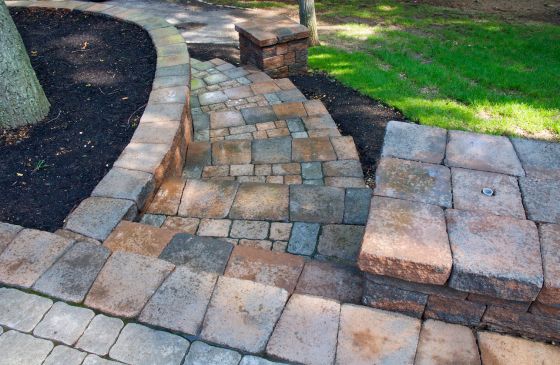
Exploring the Pros and Cons of Sealing Pavers
Introduction
Sealing pavers is a common practice aimed at enhancing the appearance and longevity of outdoor paved surfaces. Whether it’s a patio, driveway, or walkway, sealing offers various benefits. However, like any decision, it’s essential to understand both the advantages and disadvantages before proceeding.
Pros of Sealing Pavers
Enhanced Appearance
Sealing pavers can transform their look, making them appear vibrant and well-maintained. The sealer brings out the natural colors of the stones, giving them a fresh and polished appearance that enhances the overall aesthetic of the outdoor space.
Protection Against Stains
One of the primary reasons for sealing pavers is to protect them against stains. The sealer creates a barrier that repels oil, grease, and other substances, preventing them from penetrating the surface and causing unsightly stains.
UV Protection
Prolonged exposure to the sun’s UV rays can cause pavers to fade over time, resulting in a dull and worn-out appearance. Sealing pavers with a UV-resistant sealer helps prevent this fading, keeping the colors vibrant and intact for longer.
Easier Maintenance
Sealed pavers are much easier to maintain than unsealed ones. The sealer acts as a protective layer, making it easier to clean dirt, debris, and other stains from the surface. Regular maintenance becomes less time-consuming and more manageable with sealed pavers.
Stabilization of Joint Sand
Sealing pavers helps stabilize the joint sand between them, reducing weed growth and preventing erosion. This ensures that the pavers remain securely in place and maintain their structural integrity over time.
Longer Lifespan
By protecting the pavers from the elements and wear, sealing can significantly extend their lifespan. Sealed pavers are less susceptible to cracking, chipping, and other forms of damage, ensuring that they remain functional and attractive for years to come.
Cons of Sealing Pavers
Slippery Surface
One of the potential drawbacks of sealing pavers is that it can make the surface slippery, especially when wet. This can pose a safety hazard, particularly in areas prone to rain or near swimming pools where accidents are more likely to occur.
Cost
Sealing pavers incurs an additional cost, both for the sealer itself and the application process. This cost should be taken into consideration when budgeting for a paving project, as it can significantly impact the overall expenses.
Maintenance Requirements
While sealed pavers are easier to clean and maintain, they may require periodic resealing to retain their protective qualities. This adds to the long-term maintenance requirements and can involve additional time and expense.
Changes in Appearance
Depending on the type of sealer used, sealing pavers may alter their appearance. Some sealers can darken the stones or add a sheen, which may not be to everyone’s liking. It’s essential to test the sealer on a small area first to ensure it achieves the desired look.
Environmental Impact
The use of certain sealers may have environmental implications, particularly solvent-based sealers. Water-based sealers are generally more eco-friendly but may still have some impact on the environment, so it’s essential to choose carefully.
Application Challenges
Properly applying sealer to pavers requires careful preparation and attention to detail. Failure to apply it correctly can result in an uneven finish or reduced effectiveness, negating the benefits of sealing altogether.
Conclusion
In conclusion, sealing pavers offers several benefits, including enhanced appearance, protection against stains, and easier maintenance. However, it’s essential to weigh these advantages against the potential drawbacks, such as slippery surfaces, increased cost, and environmental impact. Ultimately, the decision to seal pavers should be based on individual needs and preferences, taking into account the specific requirements of the paved area.
FAQs:
How often should pavers be resealed?
The frequency of resealing depends on various factors, including the type of sealer used, the amount of foot traffic, and exposure to the elements. As a general rule, pavers should be resealed every 2-5 years.
Can I apply sealer to existing pavers?
Yes, existing pavers can be sealed as long as they are clean and free of any previous sealant or coatings. Proper surface preparation is essential to ensure the sealer adheres correctly and provides maximum protection.
Will sealing pavers prevent weed growth?
While sealing pavers can help stabilize joint sand and reduce weed growth, it may not eliminate it entirely. Weeds can still germinate and grow between the pavers, especially in areas with favorable conditions such as moisture and sunlight.
Is sealing pavers a DIY project?
Sealing pavers can be a DIY project, but it requires careful preparation and application to ensure the best results. Hiring a professional contractor may be advisable, particularly for larger or more complex paving projects.
Can I walk on sealed pavers immediately after sealing?
It’s best to wait until the sealer has fully cured before walking on sealed pavers. This typically takes 24-48 hours, depending on the type of sealer used and weather conditions.
